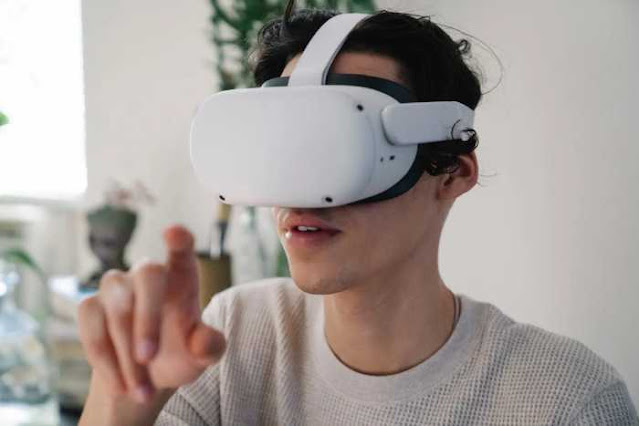%20Kill%20Live%20Music_%20Debunking%20the%20Myths%20and%20Embracing%20Innovation.jpg)
Introduction
As technology advances, the entertainment industry has
witnessed a transformative impact. Augmented Reality (AR) is one such
innovative technology that has captured the imagination of many. Still, it has
also sparked fears of potential negative consequences, especially in live
music. Some critics argue that AR could disrupt the traditional concert
experience, potentially leading to a decline in live music attendance. However,
these concerns are often rooted in misconceptions. In reality, AR has the
potential to enhance and complement live music performances, ushering in a new
era of creativity and engagement.
Myth 1: AR will replace live music with virtual concerts
One of the most significant misconceptions surrounding AR
and live music is the fear that AR will replace live performances with virtual
concerts, making the traditional concert experience obsolete. While it's true
that virtual shows have gained popularity in recent years, they do not present
a threat to live music. Instead, virtual concerts have the potential to expand
the reach of artists and introduce their music to global audiences who may not
have the opportunity to attend physical shows.
Moreover, virtual concerts cannot entirely replicate the
visceral experience of attending a live music event. The atmosphere, the crowd's
energy, and the genuine connection between the artists and their fans remain
unparalleled in the physical concert space.
Myth 2: AR will lead to a decline in live music attendance
Another concern is that AR's immersive experiences could
lead to a decline in live music attendance, as people may prefer to experience
music through AR at home. However, history has shown that technological
innovations tend to complement rather than replace live experiences. For
instance, television didn't kill the cinema industry but added another
dimension to the entertainment landscape.
Similarly, AR can create unique pre- and post-concert
experiences, which may entice more people to attend live events. AR technology
can offer interactive and personalized content, backstage glimpses, and artist
meet-and-greets, enriching the concert experience and encouraging more
individuals to participate in live music events.
Myth 3: AR will detract from the authenticity of live
performances
Critics argue that AR's inclusion in live music performances
may detract from the authenticity of the artist's talent and the raw emotional
connection between performers and their audience. However, when used
thoughtfully, AR can serve as a tool for enhancing the live experience rather
than overshadowing it.
For instance, AR could create breathtaking visual displays
that complement the music, taking the audience on a journey that amplifies the
emotions conveyed through the songs. Additionally, AR technology can enhance
the artist's stage presence, allowing them to express their creativity in new
and innovative ways.
Embracing Innovation: AR as a Catalyst for Creativity
Rather than fearing the impact of AR on live music, the
industry can embrace innovation and leverage AR's capabilities to foster
creativity and audience engagement. Here are some ways in which AR can be
integrated into live music performances:
Immersive Stage Designs: AR can create mesmerizing stage
setups, transporting the audience to fantastical worlds that align with the
artist's vision. This creates a multisensory experience, making the concert
unforgettable.
Interactive Performances: AR technology allows artists to
interact with their audience in real time, blurring the lines between performer
and spectator. This fosters a sense of unity and involvement, making the
audience an integral part of the show.
Virtual Collaborations: AR can facilitate collaborations
with physically distant artists, enabling musicians to create unique
performances without the limitations of physical proximity.
Music Education: AR can also be used as an educational tool
to help aspiring musicians learn and understand music theory, offering
interactive tutorials and virtual instruments.
Conclusion
In conclusion, the fear that Augmented Reality (AR) will
kill live music is unfounded. On the contrary, AR has the potential to revolutionize
the live music experience, enhancing creativity and audience engagement. Rather
than resisting technological advancements, the music industry should embrace AR
as a complementary tool that enriches the concert experience for artists and
fans. By harnessing the power of AR, live music can endure to evolve and thrive
in this age of innovation.
Comments
Post a Comment